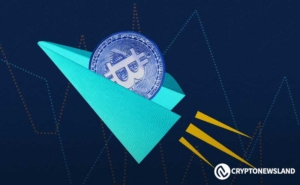Ripple’s Strategic Move to Boost Australia’s Digital Economy Through Tokenization
- Ripple is actively collaborating with Australian digital economy groups to promote asset tokenization, projected to potentially reach a $16 trillion market by 2030.
- Proposed legislative changes aim to provide clarity and protection in the market, fostering an environment conducive to innovation and investor confidence.
Ripple , known for its influential role in Blockchain technology, is undertaking significant initiatives to bolster the digital economy in Australia. The firm is partnering with key local entities like the Digital Economy Council of Australia (DECA) and the Digital Finance Cooperative Research Centre (DFCRC) to drive the tokenization of assets—a move poised to redefine financial interactions in the country.
Tokenization: A Game-Changer for the Digital Economy
The concept of tokenization involves converting rights to an asset into a digital token on a blockchain. This innovative approach not only enhances liquidity but also ensures secure and transparent transactions. Ripple ‘s analysis predicts that the market for tokenized real-world assets could surge to a staggering $16 trillion by 2030, indicating a significant transformation in how wealth is managed and traded globally.
Australia has adopted a proactive stance towards embracing these digital advancements, with Ripple commending the country’s innovative and supportive approach. However, the path to a fully integrated digital economy requires more than just technological infrastructure—it demands robust regulatory frameworks that foster long-term planning and market confidence.
Regulatory Framework: The Backbone of Innovation
The collaboration between Ripple , DECA, and DFCRFC underscores the necessity for a regulatory environment that balances flexibility with stringent standards to ensure market integrity and protect investors. According to a report by DFCRC, achieving this balance requires a comprehensive classification framework that clearly defines tokenized assets, modernized licensing regimes that integrate various financial processes, and regulatory sandboxes to test innovations safely.
These proposed reforms are critical as they provide the clarity needed for businesses to invest and innovate with confidence. Moreover, establishing controlled environments for experimentation allows for continuous adaptation and refinement of regulations in response to technological advancements.
Ripple ’s efforts in Australia are part of a broader trend observed in leading financial centers like the United Kingdom and Singapore, which are also exploring asset tokenization. Notably, major Australian banks are engaging in international tokenization projects, showcasing the country’s commitment to maintaining a competitive edge in the global digital economy.
The collaborative approach recommended by the DFCRC—engaging government, industry, and academic institutions—reflects a comprehensive strategy to ensure that Australia not only keeps pace with global innovations but also sets standards in digital financial technology.
Disclaimer: The content of this article solely reflects the author's opinion and does not represent the platform in any capacity. This article is not intended to serve as a reference for making investment decisions.
You may also like
The tariff shock wave hits the pain point of the US government leadership
Argentina's lifting of currency controls triggers a surge in local stablecoin trading
BTC Breakout Alert: Wedge Crushed, $96K–$102K on the Horizon?

